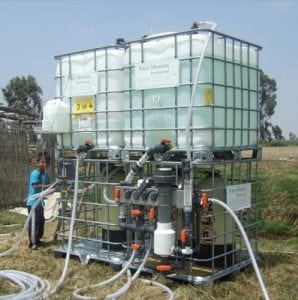
Agriculture
January 16, 2024
Living Water Treatment Systems
Read SolutionImplemented by
George Greene III, PE, PhD
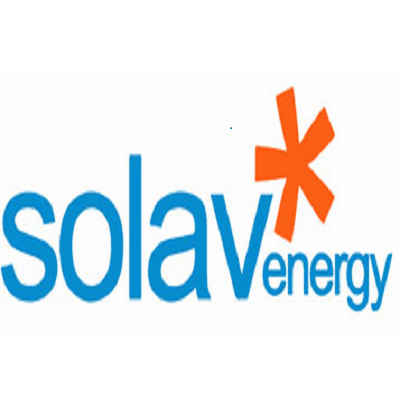
Updated on December 18, 2024
·Created on November 17, 2019
A polymer-based solar water heating system.
The Solav heating system, designed and manufactured by Solar Energy in Israel is a thermosyphon solar water heater designed to be implemented in developing countries within the sunbelt region. The system is 100% polymer-based, maintenance-free, and provides a solution that avoids corrosion, calcium deposits, and breakage of glass-made parts. The modular design allows connecting multiple units in parallel with two different volumes of 85 L and 100 L. The fully integrated design allows a plug-and-play installation which can be done in 25 minutes, avoiding the use of special tools.
Regions
Africa, Latin America
Countries
India
Manufacturing/Building Method
The Solav water heaters are designed in an ISO9001 certified company-owned facility in Israel. The system is mass-manufactured through an injection molding process, in which the base material is melted within the injection molding machine and then injected into a mold, where it is cooled until solidifying.
Intellectural Property Type
Patent
User Provision Model
Customers can obtain this product directly from the company's website. Solav's headquarters are located in Jerusalem, and two branch offices are located in South Africa and India. The system was designed so that it can be installed by two people with basic standard tools in approximately 25 minutes.
Distributions to Date Status
Unknown
System dimensions (m)
1.15 x 1.12 x 0.16 m
Capacity (L/min)
Unknown
Description of heater
Direct circulation
Description of auxiliary heating sources
A low cost electricity back-up.
Water output temperature (deg C)
40-75 deg C
Storage tank capacity (L)
85 L, 100 L, 170 L, 200 L, 255L
Design Specifications
The Solav heater is an integrated hybrid system with thermosiphon technology, in which the collector and the storage tank are combined in a single unit. The tank is made of polypropylene tank material, is glazed with polycarbonate, and provides 88% absorption. With good radiation, water in the system can reach 40°C within 3 hours. By noon, water can reach 75 °C.
Specifications for the 85 L capacity:
Specifications for the 100 L capacity
Technical Support
Technical support is provided by the manufacturer through their website.
Replacement Components
Replaceable components include water pipes and accessories.
Lifecycle
The product includes a 5-year warranty. Some systems have been operating for more than 7 years without signs of deterioration.
Manufacturer Specified Performance Parameters
The designers aim to reduce corrosion, calcium deposits, and breakage of glass made parts by using a polymer-based material.
Vetted Performance Status
Unknown
Safety
During installation, users must cover the system's glazing completely, to avoid the accumulation of hot air within the body and the risk of injury.
To avoid loss of warranty, the use of parts provided by the manufacturer is required.
Exposure of the system to temperatures higher than 95°C is not recommended, because the plastic can be irreversibly damaged.
Complementary Technical Systems
A low-cost electricity back-up can be installed for when solar radiation is not enough. With this back-up, water can be heated in less than 20 minutes.
Academic Research and References
Compliance with regulations
The product is produced in an ISO9001 certified company-owned facility.
Evaluation methods
The company has been evaluated following the ISO9001 evaluation methods.
Other Information
A video explaining the main features of this product can be found here.

Agriculture
January 16, 2024
Implemented by
George Greene III, PE, PhD
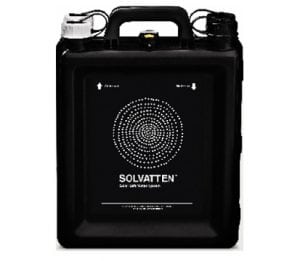
Agriculture
January 16, 2024
Implemented by
Solvatten
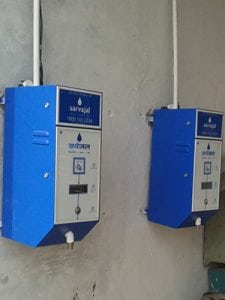
Agriculture
January 3, 2024
Implemented by
Piramal Water Pvt Ltd.
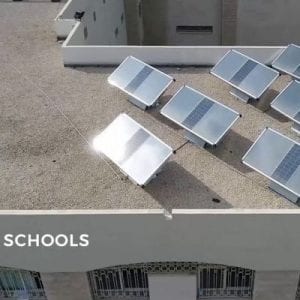
Agriculture
January 10, 2024
Implemented by
SOURCE
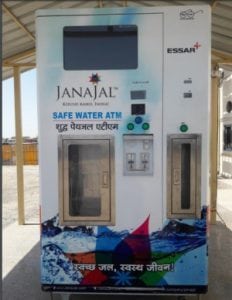
Agriculture
January 8, 2024
Implemented by
JanaJal
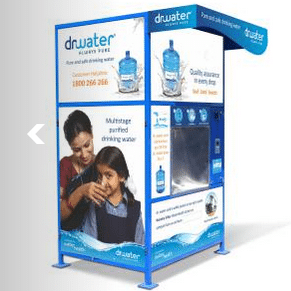
Agriculture
January 3, 2024
Implemented by
Water Health Centre

Agriculture
February 4, 2024
Implemented by
nedap
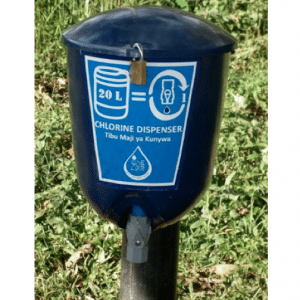
Agriculture
September 23, 2023
Implemented by
Innovations for Poverty Action
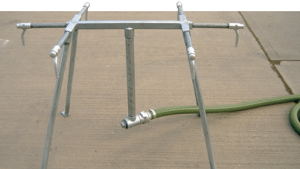
Agriculture
January 10, 2024
Implemented by
Evenproducts
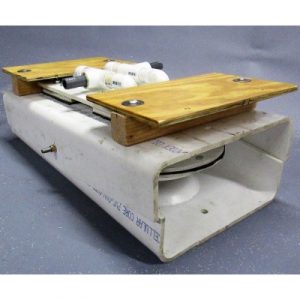
Agriculture
September 10, 2024
Implemented by
Full Belly Project
Have thoughts on how we can improve?
Give Us Feedback